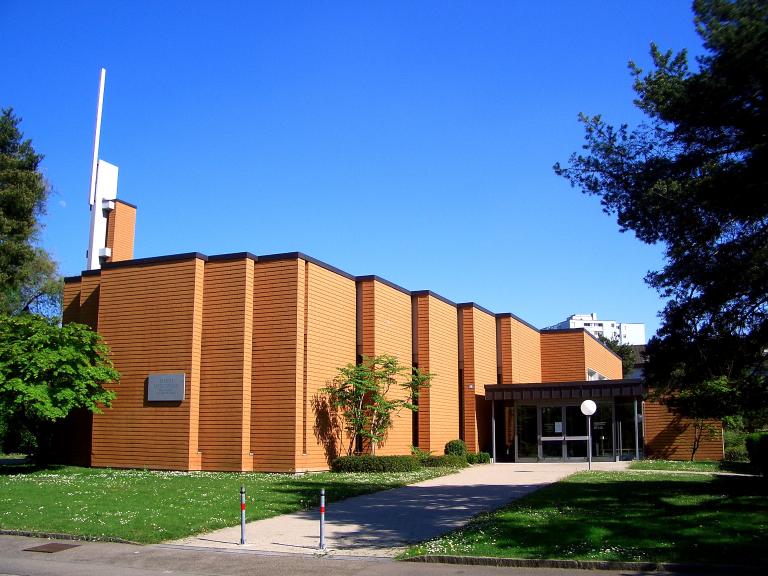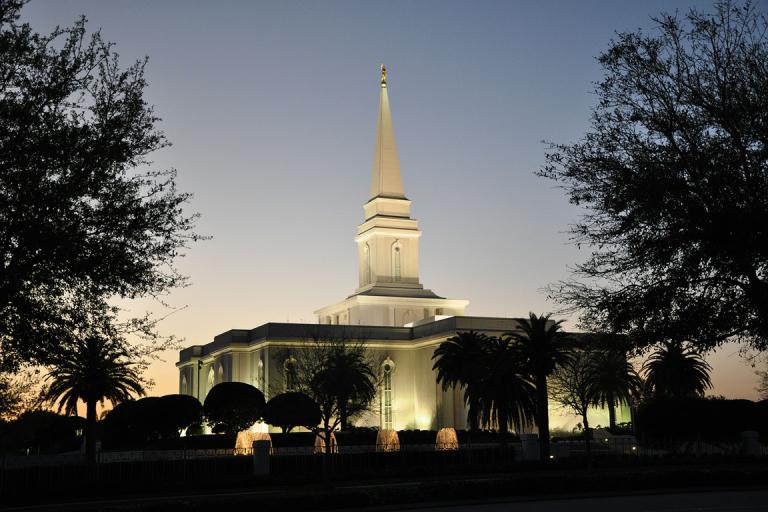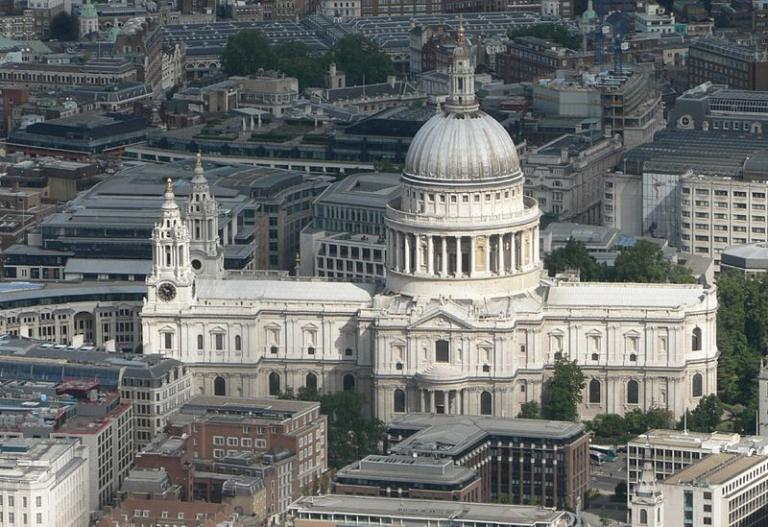
I taught the Sunday school class this morning (on Alma 5-7) in what I think is the Västra Frölunda Ward of the Church of Jesus Christ of Latter-day Saints. The ward meets in the building in which we held the FAIR conference yesterday — though it’s a different ward from where we attended (and I gave a fireside) when we were here eight years for the previous FAIR here. It still looks new and contemporary, but I’m told that it’s the building where Elder Dale G. Renlund of the Quorum of the Twelve — the G stands for Gunnar — attended church for several years as a teenager. It is also the home ward of Per Gösta Malm, who served as a General Authority of the Church from 201o until his death in 2016. His widow was there today.
After church, my wife and I headed to the airport, from which we flew to Copenhagen, Denmark, and then on to Zürich, Switzerland.

Fundamental to a long-term writing project of mine — or, at least, to its opening chapter — is a famous argument that has come to be called “Pascal’s wager.” As part of my thinking about the wager, I’ve read Michael Rota, Taking Pascal’s Wager: Faith, Evidence and the Abundant Life (Downers Grove, IL: IVP Academic, 2016). At the time that he published Taking Pascal’s Wager, Dr. Rota was an associate professor of philosophy at the University of St. Thomas, in St. Paul, Minnesota.
I try — rather inconsistently, I admit — to use this blog as a mode of storing and sharing notes from my reading, and I’m going to do that yet again in this case. Here are a couple of introductory quotations from Professor Rota on “the seventeenth-century polymath Blaise Pascal” and his famous (and controversial) “wager”:
Pascal made important contributions in mathematics, probability theory and physics. His work on fluid mechanics was instrumental in the later invention of the hydraulic press, and he himself designed and built one of the first mechanical calculating machines, an early precursor to the digital computer. (Interestingly, the principles used in the machine are still employed in many automobile odometers.) Pascal was an inventor, an intellectual and a scientist. He was also a deeply religious man. At the age of thirty-one he had a powerful mystical experience of God. He described the experience in a note and stitched the note into his coat, keeping it close to him. He evidently transferred the paper note (together with a cleaner copy he put down on parchment) from coat to coat for the rest of his life — as a servant found them there after his death. (22-23)
As noted, when Pascal died at the age of just slightly past thirty-nine in 1662, his servant found a small piece of parchment that had been sewn into his coat. At the top of the paper, Pascal had drawn a cross. Underneath the cross were these words:
The Year of Grace 1654Monday, November 23, day of saint Clement, pope and martyr,
and others in the martyrology.
Vigil of Saint Chrysogonus, martyr, and others.
From about ten-thirty in the evening to about half an hour after
Midnight,
Fire.
God of Abraham, God of Isaac, God of Jacob,
Not of the philosophers and savants.
Certitude, certitude; feeling, joy, peace.
God of Jesus Christ.
Deum meum et Deum vestrum.
“Thy God shall be my God.”
Forgetting the world and everything except God. He is only found by the paths taught in the Gospel.
Grandeur of the human soul.
“Just Father, the world has not known you, but
I have known you.”
Joy, joy, joy, tears of joy.
I separated myself from him:Dereliquerent me fontem aquae vivae[They have forsaken me the fountain of living water]
“My God, will you abandon me?”
May I not be eternally separated from him.
“This is eternal life, that they know you, the only true God,and
Him whom you have sent, Jesus Christ.”
Jesus Christ.
Jesus Christ.
I separated myself from him; I fled him, renounced him,
Crucified him.
May I never be separated from him!
He is only kept by the paths taught in the Gospel.
Total submission to Jesus Christ and to my director.
Eternally in joy for a day of trial on earth.
Non obliviscar sermonestuos [I will not forget your words]. Amen.[cited by Romano Guardini,Pascal For Our Time (Herder and Herder, 1966), 33-34]
There is, to me, something very moving in Pascal’s story.
Here an interpretive expansion and reformulation of the “wager” given by Professor Rota:
If Christianity is indeed true, then by committing to live a Christian life one brings great joy to God and all others in heaven, raises the chance that one will be with God forever, raises the chance that one will help others attain union with God, expresses gratitude to God, and becomes more aware of God’s love and more receptive to his help in the course of one’s earthly life. On the other hand, if Christianity is false, the person who commits his or her life to Jesus’ teachings has still lived a worthwhile life, striving for moral excellence and experiencing the benefits of religious community (benefits that contemporary sociological research reveals to be significant). (23)
Here are some further notes from Rota, Taking Pascal’s Wager, 33-34, on the benefits to be gained from taking Pascal’s wager if theism or Christianity — he hasn’t yet sought to distinguish precisely between them, and (we shall see!) perhaps will not — turns out to be true. For sake of verbal economy, Dr. Rota labels as WC the conjoint proposition You take the wager and Christianity is true:
- One will have “maximized one’s chance at eternal life.” (33)
- Since God presumably hopes that we will choose him and, thereby, accept his offer of eternal life, “by seeking closeness with God, you will bring joy to God and all others who are with God in heaven.” (33)
- One will have shown gratitude to God, for his grace and his generous offer of eternal life and other blessings. This is perhaps something quite like (2) above, but it’s viewed this time not from God’s perspective but from the perspective of the human person involved. For gratitude is a virtue, and the cultivation of virtue is a good thing.
- “Fourth, it’s very plausible to think that you are more likely to benefit from divine aid for moral and spiritual growth if you seek a relationship with God than if you don’t. No doubt God would not leave you without grace if you didn’t seek him, but it’s reasonable to think that if you’re more open to God’s assistance in your life, then you’ll end up resisting less when God sends help your way.” (33)
- “Fifth, you are more likely to be aware of God’s love during this earthly life. If Christianity is true, a close relationship with God can begin now.” (34)
- “Sixth, if Christianity is true and you’ve attempted to follow a Christian way of life, you’re more likely to be a help to others in their journey to God. Since the ultimate good for human beings will largely depend on their relationship with God, we can include in outcome WC the idea that you’ll be more likely to help others in the most important way possible.” (34, italics in the original)
These six propositions are neatly summarized in a simple chart on page 34, which also alludes to “this-worldly costs and benefits of WN [You take the wager and Christianity is not true]” without yet enumerating them.
The six goods just mentioned are all goods specific to outcome WC; they are goods that won’t also be present if Christianity is false, and thus are goods that won’t be included in outcome WN. (34)
Posted from Zürich, Switzerland













